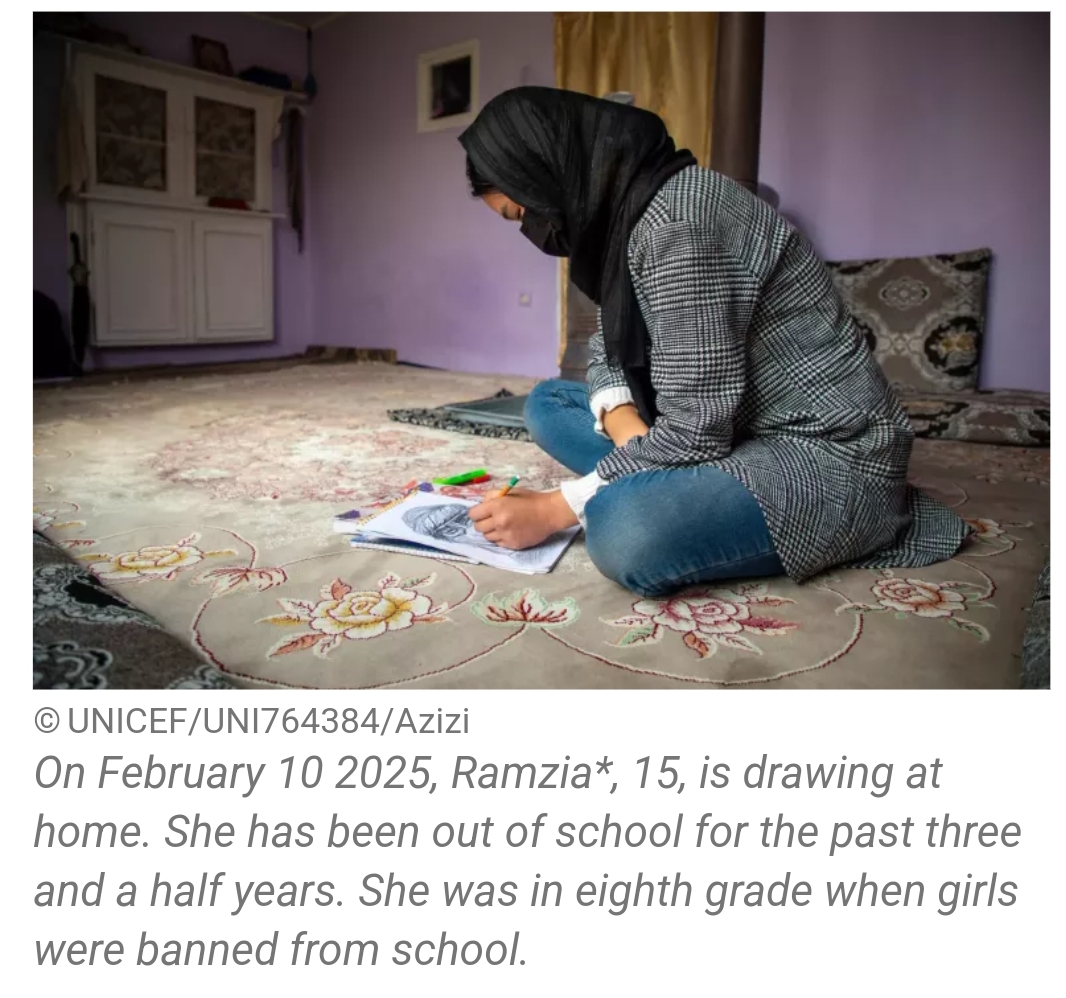UNICEF Urges Immediate End to Ban on Girls’ Secondary Education in Afghanistan, Warns of Devastating Consequences.
New York:
As the new school year begins in Afghanistan, it marks a troubling milestone: three years since the government imposed a ban on girls’ secondary education. This policy, still in place, continues to deprive millions of Afghan girls of their fundamental right to education, with devastating consequences not just for the girls, but for the nation as a whole.
UNICEF has warned that if this ban continues until 2030, more than four million girls will be unable to pursue education beyond primary school, severely limiting their future opportunities. The long-term effects on the health, economy, and well-being of the country are catastrophic, UNICEF stressed in a recent statement.
“The consequences for these girls—and for Afghanistan—are catastrophic,” said UNICEF in its appeal. “The ban is having a ripple effect across multiple sectors of Afghan society. With fewer girls receiving an education, the risks to their health and safety grow exponentially.”
One of the most alarming repercussions of this denial of education is an increase in child marriage. Girls without access to secondary education face a much higher likelihood of being married off at an early age, which in turn negatively impacts their health, well-being, and prospects for the future.
Moreover, Afghanistan is likely to face a critical shortage of qualified female health workers, including doctors and midwives, which could endanger the lives of countless women and children. UNICEF estimates that, without the education of more women in these fields, the country will see an additional 1,600 maternal deaths and over 3,500 infant deaths—statistics that reflect not just numbers, but the lives lost and families torn apart.
For over three years, the rights of Afghan girls have been systematically violated, and UNICEF is calling for an immediate reversal of the ban. “All girls must be allowed to return to school now. If these capable, bright young girls continue to be denied an education, the repercussions will last for generations,” said UNICEF. “Afghanistan cannot afford to leave half of its population behind.”
Despite the ban, UNICEF has been working tirelessly to ensure that education is still accessible to Afghan children. Through community-based learning initiatives, the organization has reached over 445,000 children, 64% of whom are girls. In addition, UNICEF has been empowering female teachers, providing positive role models for young girls who are currently unable to attend school.
UNICEF’s commitment to Afghan children, regardless of gender, remains strong. The organization is continuing to advocate for the right of every Afghan girl to receive an education and is urging the de facto authorities to lift the ban immediately.
“Education is not just a fundamental right; it is the pathway to a healthier, more stable, and prosperous society,” UNICEF concluded.




